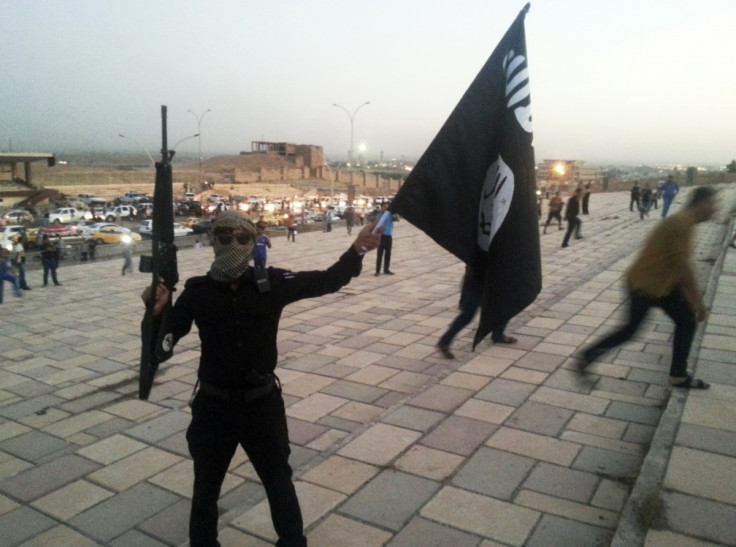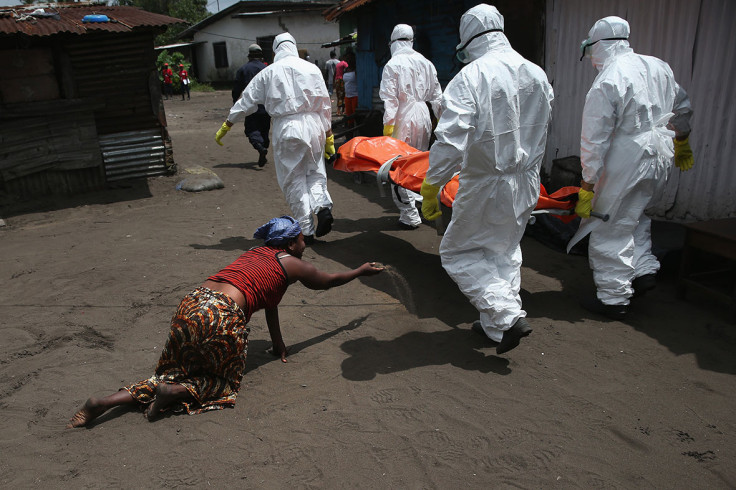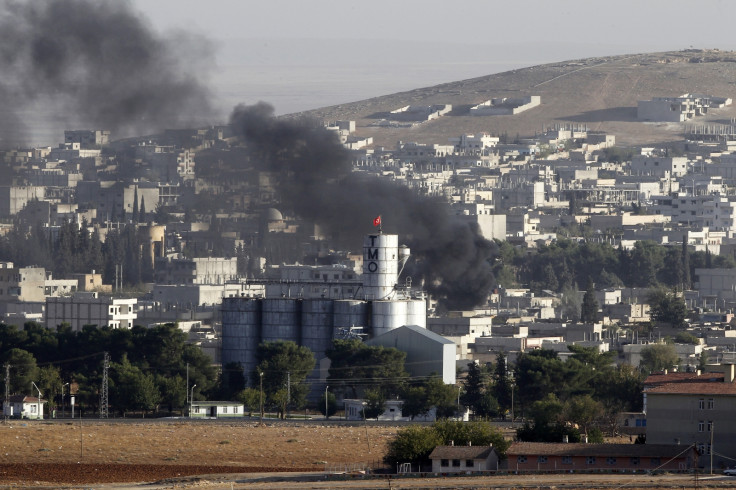Ebola and Isis: Black Swans of the Apocalypse?

The trouble with Black Swan events is that you need hindsight to identify them, by which time it's too late.
Black Swan theory was developed by Nassim Nicholas Taleb, a former Wall Street trader and risk analyst-turned academic philosopher. At the heart of the theory are so-called Black Swan events - unexpected happenings that seemingly come out of nowhere, but in retrospect, could have been predicted because there were unheeded signals.

They're the ultimate 'told-you-so' for Prophets of Doom.
Two things have apparently sprung from the darkness to grab the world's attention: the spread of Ebola and the rise of Isis (also known as the Islamic State). Are these Black Swan events with catastrophic potential?
Ebola has, at the time of publishing, claimed over 4,000 lives since Patient Zero, a Guinean 2-year-old who is thought to have contracted the virus from a fruit bat, died on 6 December, 2013. Most of the victims so far are Africans.
It is a gruesome infection, especially for those who live in African poverty. Bleeding from the eyes, families wiped out, unburied bodies of victims left to fester because nobody will go near them.
Their miserable plight was gladly compartmentalised in Western society's psyche as another uniquely African problem. Then it spread to Europe and America, where it has all of a sudden become 'our' problem too.
For years scientists have warned that we face another pandemic like the Spanish Flu of the early 20th Century, which at its peak in 1918 killed somewhere between 20 and 40-million people in a single year.
Currently, Ebola is transmitted by coming into contact with the bodily fluids of an infected person, and so with enough caution its spread can be hindered. The West's hi-tech infection control measures will also keep a lid - at least for a while - on any spread of the virus, of which there have been only two confirmed cases in the US.
But Ebola could mutate into an airborne virus, which would have nightmarish implications.
It could have been SARS, but it wasn't. It could have been Bird Flu, but it wasn't. It could have been Swine Flu, but it wasn't. Will it be Ebola?
From biological to ideological infection
From the womb of chaos in Assad's Syria and post-2003 Iraq was born Isis – also known as Islamic State, a self-appointed Caliphate headed up by the maniacal extremist Abu Bakr al-Baghdadi.
The pace and scale of the Isis advance took most by surprise. In several months they have murderously scoured the Middle Eastern deserts, razing town by town into submission, to the point where they are now knocking at the doors of Turkey and Baghdad.
How far will they get? What happens when the West has more or less leaves Afghanistan and its security forces to fend for themselves? If Isis turns up in the Tora Bora, will Afghan forces crumble into dust like the Iraqi Army did?
It would leave Isis just a mountain range away from Pakistan, itself a petri dish for radical fundamentalist specimens and a country armed with nuclear weapons. Isis in Islamabad is an unlikely doomsday scenario, but the point of a Black Swan event is that it is unforeseen despite the signs.

And even if they don't reach Pakistan, they could destabilise other parts of the Middle East in their quest to establish a sprawling totalitarian fascistic Islamic theocracy. Will they take control of large chunks of the world's oil supply, which would wreak havoc in the markets and end Western economic recoveries?
The signs that such a group could emerge were arguably there. The concept of an Iraqi state, imposed by the imperialist map drawing of the British Empire, has always sat uncomfortably with the nature of Middle Eastern demography.
There's a multitude of tribal, religious and ethnic groups fudged together under one national umbrella, an awkward and flammable muddle. It sparked into fire under the divisive sectarian rule of former Iraqi prime minister Nouri al-Maliki, whose unashamedly pro-Shia governance from 2006 to 2014 in particualr isolated and oppressed the country's Sunni Muslims - the same branch as Isis.
He was one in a line of leaders charged with unifying Iraq again after years of bloody war, which culminated in the toppling of tyrannical leader Saddam Hussein. Maliki, and the Western forces who invaded in 2003 to finish what should have been settled in the first Iraq War of 1990, failed to create an inclusive Iraqi civil society.
And the unanswered question of how to stop the Syrian civil war has also allowed Isis to thrive in places such as Raqqa, the Caliphate's de facto capital city.
The tribal nature of Middle Eastern society. The breakdown of Syria. The proliferation of Islamic extremism in recent years. The meltdown of the historic secular dictatorships under the Arab Spring leaving a power void. All of these things could have implied the rise of a group like Isis. But most of us - though not all - didn't see it coming.
Both Ebola and Isis present a number of troubling scenarios for an unprepared world struggling to keep up with their development. And that's without even taking into account any more Black Swan events lurking ahead in 2015.
© Copyright IBTimes 2025. All rights reserved.






















